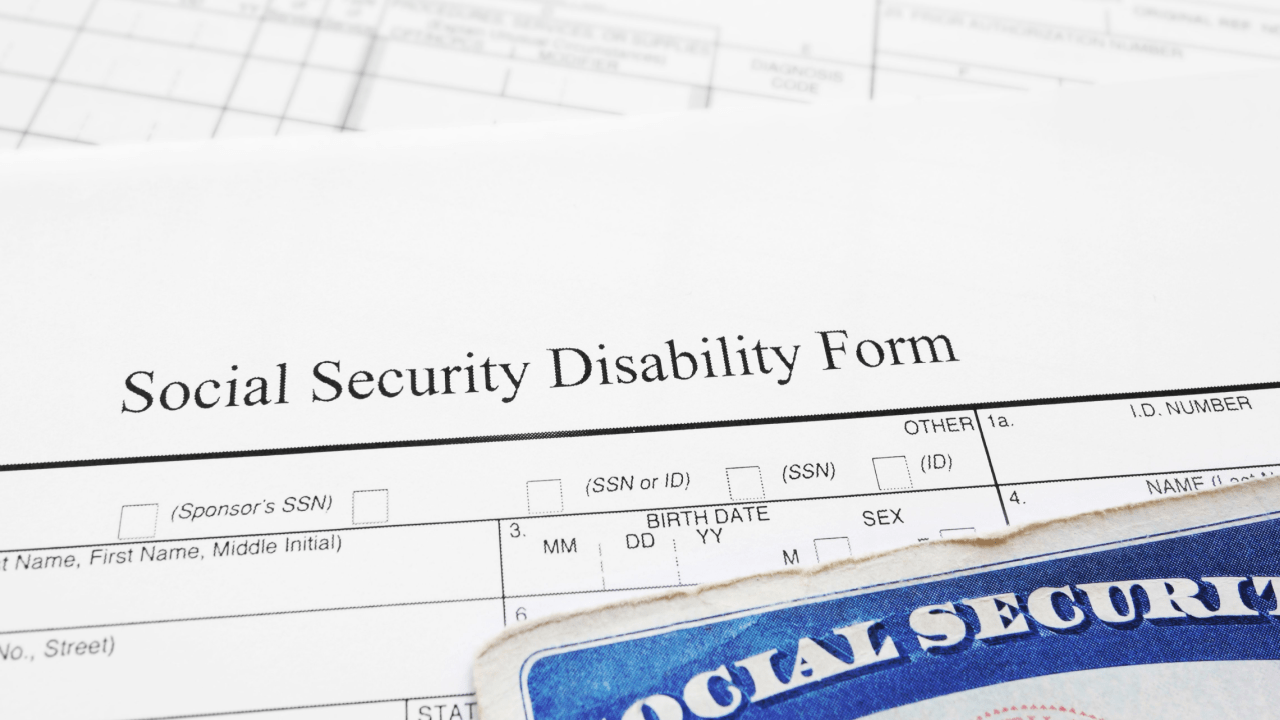
Strategies for Navigating SSDI Reconsideration: Complete Appeal Guide
Expert Insight: Strategies to Win SSDI Reconsideration
Ultimately, learning effective strategies for navigating SSDI reconsideration can help applicants better understand the appeals process and available options. Additionally, SSDI reconsideration represents the first level of appeal after your initial disability claim denial, offering a crucial opportunity to present new evidence and address the specific reasons for your rejection.
However, the statistics are sobering—reconsideration approvals occur less frequently than later appeal stages. However, The Social Security Administration’s Office of Quality Review data reveals that properly prepared appeals may better address examiner concerns through clearer evidence presentation. Many seemingly hopeless denials can be overturned with the right approach, timing, and documentation.
What You’ll Learn:
- Critical 60-day timing requirements and deadlines
- When reconsideration makes strategic sense vs. proceeding to hearing
- Essential medical evidence that strengthens appeals
- Common mistakes that frequently lead to denial
- Expert legal strategies for working with attorneys
Therefore, success demands more than hope—it requires systematic preparation, understanding SSA evaluation criteria, and leveraging proven tactics that address examiner concerns directly.
Critical Timing: When SSDI Reconsideration Makes Sense
Importantly, the 60-day deadline starts from your denial notice date, not when you received it. SSA assumes receipt five days after the notice date. Missing this deadline forces you to start the entire application process over, potentially affecting benefit timelines. Extensions are extremely rare and require extraordinary circumstances beyond your control.
Cases Most Likely to Succeed on Reconsideration
Strong Candidates:
- New diagnostic test results showing condition progression
- Previously unavailable specialist evaluations
- Additional medical evidence addressing specific denial reasons
- Technical errors in original application processing
Poor Candidates:
- Same evidence as original application
- Technical denials (work credits, income limits)
- Gaps in medical treatment exceeding six months
| Factor | Reconsideration | ALJ Hearing |
| Review Type | Paper review | Formal hearing |
| Evidence Format | Written records | Oral testimony allowed |
| Examiner | Disability examiner | Administrative Law Judge |
| Complexity | Lower | Higher |
Scenario: Recent MRI reveals spinal stenosis not visible in original X-rays = Strong reconsideration candidate
Scenario: Same back pain complaints without new medical evidence = Skip to hearing
Evidence Building: Medical Proof for SSDI Reconsideration
Successful reconsideration requires new medical evidence that strengthens your disability claim beyond the original application. The Centers for Medicare & Medicaid Services emphasizes that updated documentation showing condition progression or previously unavailable records plays an important role in how claims are evaluated. Focus on obtaining comprehensive medical records demonstrating functional limitations rather than just diagnostic information.
Work closely with treating physicians to document how your condition prevents work-related activities. Regular medical visits create consistent treatment records, while gaps in care can undermine your claim credibility.
Essential Medical Documentation Checklist
Recent Medical Records (within 3-6 months):
- Physician treatment notes with symptom progression
- Diagnostic test results (MRI, CT scans, X-rays, lab work)
- Specialist evaluations and consultation reports
- Mental health records and psychological testing
- Medication lists with side effects and effectiveness
- Hospital discharge summaries and emergency room visits
Functional Evidence:
- Residual Functional Capacity (RFC) assessments
- Physical therapy and rehabilitation records
- Work restriction documentation from employers
Getting Strong Physician Support Letters
Template Request Language: “Please provide a detailed medical source statement addressing my specific functional limitations, including: how long I can sit/stand/walk, lifting restrictions, concentration difficulties, and work-related limitations caused by my condition. Include objective medical findings supporting these restrictions and your clinical observations of my functional decline.”
Effective Functional Capacity Examples:
- “Patient cannot sit longer than 15 minutes due to documented disc herniation L4-L5”
- “Severe depression limits concentration to 10-minute intervals, confirmed by cognitive testing”
Common Mistakes: Failed Strategies to Win SSDI Reconsideration
Many SSDI reconsideration appeals are denied due to preventable errors. Understanding common mistakes is important, as reconsideration decisions are often based on strict procedural and evidentiary requirements. Research indicates that inadequate medical evidence and procedural errors are common factors in reconsideration denials.
Top 5 Fatal Reconsideration Mistakes:
- Missing the 60-Day Deadline – Absolute cutoff with rare exceptions
- Submitting Identical Information – Recycling original application materials
- Focusing on Symptoms Instead of Work Limitations – Describing pain vs. inability to function
- Inadequate Medical Evidence Organization – Scattered, incomplete documentation
- Filing New Applications Instead of Appeals – Losing back pay and starting over
Why Recycling Old Evidence Fails
Simply resubmitting prior materials often results in denial. Reconsideration requires new evidence demonstrating disability progression or previously unavailable documentation. The Social Security Administration assigns different examiners specifically to find fresh perspectives on your case.
Weak Example: “I still have back pain and can’t work.”
Strong Example: “MRI from [date] shows disc herniation progression. Physical therapy notes document decreased range of motion from 45° to 20°. Physician’s RFC assessment confirms inability to lift over 10 pounds or sit longer than 15 minutes.”
Documentation Errors That Kill Appeals
Medical evidence must establish functional limitations, not just diagnoses. Records showing “chronic pain” mean nothing without documentation of how pain prevents work activities like lifting, standing, or concentrating.
Critical Requirements:
- Residual Functional Capacity (RFC) assessments
- Objective medical findings (imaging, lab results)
- Treatment compliance documentation
- Functional limitation specifics
WARNING: Filing a new application instead of appealing loses all back pay to your original filing date and forces you through the entire process again.
WARNING: Missing the 60-day appeal deadline typically ends your case permanently.
Legal Support: Working with Disability Attorneys
Hiring a disability attorney for SSDI reconsideration significantly impacts case outcomes. The U.S. Government Accountability Office (GAO) confirms that applicants with legal representation may assist with procedural requirements, evidence organization, and appeal preparation
Attorney Fee Structure Overview
Disability attorneys work on contingency—attorney fees are typically contingent and subject to applicable approval rules. Attorney fees are subject to statutory limits and approval by the Social Security Administration. The Social Security Administration automatically deducts fees from your first payment and pays attorneys directly. Additional costs may include administrative expenses such as medical record retrieval, depending on the case.
DIY vs. Professional Representation
| Factor | Self-Representation | Attorney Representation |
| Review Process | Applicant-managed | Attorney-managed |
| Evidence Preparation | Self-collected | Organized with legal guidance |
| Procedural Requirements | Applicant responsible | Attorney assists with filings |
| Time Commitment | Higher personal involvement | Reduced personal involvement |
| Hearing Preparation | Self-prepared | Guided preparation |
Questions to Ask Potential Attorneys:
- How many SSDI cases have you handled this year?
- What’s your success rate at hearings?
- Will you personally handle my case?
- How do you communicate case updates?
- What additional costs should I expect?
- How long will my case take?
Mental Health Reconsideration Success
Sarah’s initial SSDI application for severe depression and anxiety was denied after the Social Security Administration (SSA) determined her condition wasn’t sufficiently limiting. Her reconsideration appeal succeeded by strengthening her medical evidence significantly.
Before: Limited psychiatric records showing only monthly therapy sessions and basic medication management. No detailed functional assessments or workplace documentation.
After: Comprehensive evidence package including detailed psychological evaluations, increased treatment frequency documentation, employer statements about missed work and performance decline, and a treating psychiatrist’s detailed RFC (Residual Functional Capacity) assessment outlining specific cognitive limitations.
Timeline: Initial denial in March, reconsideration filed in April, approval received in August (4-month process).
Physical Disability Appeal Victory
Mark’s back injury claim was initially denied despite multiple surgeries. His successful reconsideration focused on demonstrating functional limitations rather than just medical diagnosis.
Before: Basic medical records showing surgeries and MRI results without detailed functional impact documentation.
After: Added physical therapy assessments, pain management specialist reports, detailed daily activity logs, family member statements, and vocational expert opinion on work limitations. Updated medical records showed progressive deterioration despite treatment.
Key Success Factor: The addition of objective functional capacity evaluations and comprehensive pain documentation convinced the SSA that Mark’s limitations prevented substantial gainful activity.
Timeline: Reconsideration approval achieved in 5 months, with benefits retroactive to original application date.
Final Takeaway: Key Considerations for SSDI Reconsideration
While SSDI reconsideration presents significant challenges, careful preparation can help applicants better understand and navigate the appeals process. The key lies in understanding what went wrong initially and addressing those issues with compelling new evidence and strategic presentation.
The following considerations may be helpful during the reconsideration process:
First, gather substantial new medical evidence that wasn’t available during your initial application. Recent doctor visits, updated diagnostic tests, specialist evaluations, and documented treatment changes carry the most weight with decision-makers.
Second, focus relentlessly on functional limitations rather than just symptoms. Document specifically how your condition prevents you from performing work-related activities like sitting, standing, concentrating, or following instructions. Real-world examples of daily limitations resonate more than clinical descriptions.
Third, respect the absolute 60-day filing deadline and consider professional representation. Missing this deadline means starting over completely, while experienced disability attorneys can assist with procedural requirements, evidence development, and understanding appeal rules.
Remember, reconsideration is just one step in the appeals process. Even if denied, the hearing level involves a more formal review process with additional procedural steps. The key is building a strong foundation now that will serve you throughout the entire appeals journey. Building a strong foundation early can support your claim throughout the appeals process.
Next Steps: Understanding SSDI Reconsideration Support Options
Don’t let the complex SSDI reconsideration process overwhelm you. Given the complexity of the reconsideration process, some applicants choose to seek legal assistance to better understand procedural requirements and evidence expectations. Remember, you have 60 days from the date of your denial notice to file a reconsideration request.
Our experienced disability attorneys understand the intricacies of Social Security law and know exactly what evidence and documentation will strengthen your case. We work on a contingency fee basis, meaning you pay nothing unless we win your case. This ensures our interests are aligned with yours throughout the entire process.
Take advantage of our comprehensive case evaluation to understand your options and develop a winning strategy. Our team will review your denial letter, assess your medical evidence, and identify the strongest approach for your reconsideration appeal.
Don’t face this challenging process alone. Visit our website at social security disability to learn more about how we can help you navigate your SSDI reconsideration successfully.
Frequently Asked Questions
1. How long does SSDI reconsideration take?
SSDI reconsideration typically takes 3-5 months from filing. Timeline varies based on state processing volume and case complexity. A different examiner reviews your entire file during this period.
2. Can I submit new medical records during reconsideration?
Yes, new medical evidence is crucial for success. Include recent doctor visits, updated test results, and specialist evaluations. Submit evidence early in the process for best results.
3. What happens if my SSDI reconsideration is denied?
You can request a hearing before an administrative law judge within 60 days. Hearing level has higher approval rates (40-60%) compared to reconsideration’s 10-15% rate.
4. Do I need a lawyer for SSDI reconsideration?
While not required, attorney representation significantly improves approval chances. Disability attorneys work on contingency with no upfront costs. Their expertise is valuable for complex cases.
5. What are the best strategies to win SSDI reconsideration?
Focus on new medical evidence, emphasize functional limitations preventing work, meet the 60-day deadline, and consider professional representation.
Key Takeaways
- Evidence Focus: New medical documentation is essential for reconsideration success – resubmitting old records rarely works
- Timing Matters: The 60-day deadline is absolute and missing it means starting over completely
- Functional Emphasis: Document how your condition prevents work, not just symptoms or diagnoses
- Professional Help: Attorney representation significantly improves approval odds at every stage
- Realistic Expectations: Reconsideration has low success rates, but proper strategy helps improve your chances


